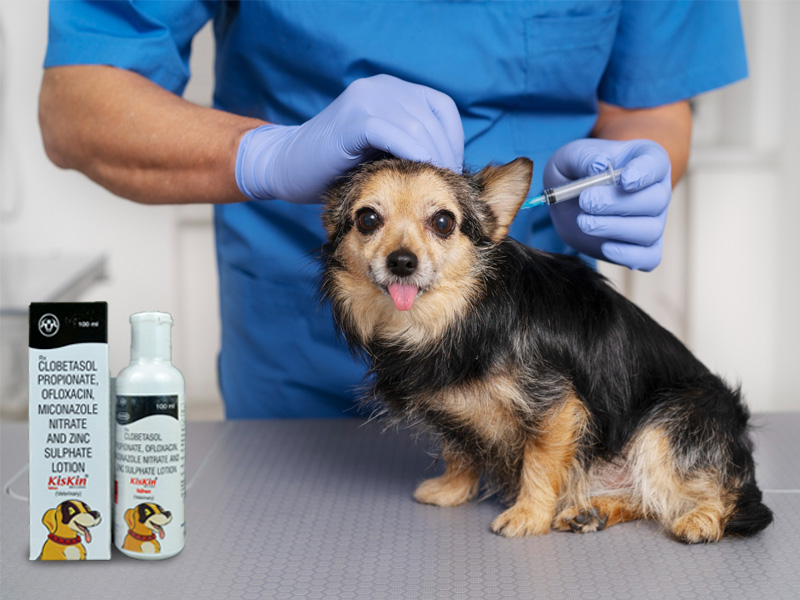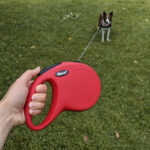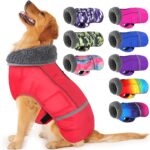When it comes to our furry friends, ensuring their health and well-being is always a top priority. As pet owners, we often find ourselves combing through a wealth of information to make informed decisions about our pets’ care. One common concern is the use of medications originally intended for humans, such as Clobetasol Propionate. This potent topical corticosteroid is frequently prescribed for various skin conditions, but is it safe for our canine companions?
In this article, we’ll explore the ins and outs of Clobetasol Propionate, shedding light on its uses, potential side effects, and what veterinarians want pet owners to know before considering it for their dogs. Whether you’re managing a specific skin issue or just curious about your dog’s treatment options, we’re here to provide the friendly, informative insights you need to ensure your pet stays happy and healthy.
Table of Contents
- Understanding Clobetasol Propionate and Its Uses in Veterinary Medicine
- Potential Side Effects of Clobetasol Propionate in Dogs
- When to Consult Your Veterinarian About Clobetasol Use
- Safe Application Practices for Pet Owners Using Clobetasol Propionate
- Q&A
- In Retrospect
Understanding Clobetasol Propionate and Its Uses in Veterinary Medicine
Clobetasol propionate is a potent topical corticosteroid widely used in veterinary medicine for its anti-inflammatory and immunosuppressive properties. It is particularly effective in treating various dermatological conditions in dogs, including dermatitis, eczema, and allergic reactions. By reducing inflammation and relieving itching, this medication aids in promoting comfort and healing in pets suffering from skin disorders. However, due to its strength, clobetasol should only be used under the guidance of a veterinarian to ensure safe and effective treatment.
When using clobetasol propionate, it is important for pet owners to be aware of the potential side effects and proper application methods. Some key considerations include:
- Application Frequency: Follow your vet’s recommendations regarding how often to apply the medication.
- Duration of Use: Limit usage to the prescribed time frame to avoid potential skin thinning or other side effects.
- Monitoring Effects: Keep an eye on your dog for any adverse reactions such as increased redness, irritation, or excessive scratching.
Additionally, always inform your veterinarian about any other medications your dog is currently taking to prevent drug interactions, ensuring a comprehensive approach to your pet’s health.
Potential Side Effects of Clobetasol Propionate in Dogs
While clobetasol propionate can be effective for treating various skin conditions in dogs, it is essential to be aware of the potential side effects that may arise during its use. Some common reactions include:
- Skin Irritation: Redness, itching, or a burning sensation may occur at the application site.
- Thinning of the Skin: Prolonged use can lead to skin atrophy, making the skin more fragile.
- Increased Risk of Infection: The immune response in the skin may be suppressed, making infections more likely.
Furthermore, systemic side effects can manifest if the medication is absorbed into the bloodstream, especially with excessive use or incorrect application. These include:
- Cushing’s Syndrome: Symptoms such as increased thirst, frequent urination, and appetite changes may develop.
- Adrenal Suppression: This can affect the dog’s ability to respond to stress.
- Gastrointestinal Issues: Some dogs may experience vomiting or diarrhea.
When to Consult Your Veterinarian About Clobetasol Use
Using clobetasol propionate for your dog can be beneficial, but it’s crucial to recognize when professional veterinary advice is needed. If you notice any of the following symptoms after starting treatment, it’s time to contact your veterinarian:
- Severe itching or discomfort that doesn’t improve.
- Swelling or redness in areas where the medication was applied.
- Signs of infection, such as pus or an unusual odor.
- Unexpected side effects like vomiting, diarrhea, or lethargy.
Additionally, if you have any concerns regarding the duration of use or the appropriate dosage for your dog, it’s wise to consult your veterinarian. Regular check-ins can help ensure that your pet is responding well to treatment. It’s especially vital to seek guidance if your dog has pre-existing conditions or is on other medications that might interact with clobetasol. Here’s a simple table to summarize important considerations of clobetasol use:
| Consideration | Action |
|---|---|
| Persistent symptoms | Consult your vet |
| Reaction to medication | Seek veterinary advice immediately |
| Pre-existing health conditions | Discuss treatment options with your vet |
Safe Application Practices for Pet Owners Using Clobetasol Propionate
When applying clobetasol propionate to your pet, it’s essential to follow safe practices to ensure their health and well-being. First and foremost, always consult your veterinarian before starting any treatment. Your vet can provide tailored recommendations regarding dosage and frequency based on your dog’s specific condition. Here are some essential tips to keep in mind:
Use sparingly: Apply a thin layer only to the affected area to minimize the risk of side effects.
Avoid sensitive areas: Don’t apply the ointment on wounds, near the eyes, or on broken skin unless directed by your vet.
Monitor for reactions: Watch for any signs of irritation or adverse reactions, such as excessive itching, redness, or swelling.
Keep it out of reach: Store the medication safely to prevent accidental ingestion by your pet.
Follow dosage instructions: Adhere strictly to the application guidelines provided by your veterinarian.
In addition to adhering to application guidelines, consider creating a routine for applying clobetasol propionate that prioritizes your pet’s comfort. Ensure your pet is calm and relaxed during application to make the process smooth. You can incorporate a few simple strategies:
Positive Reinforcement: Reward your pet with treats or affection following the application to create a positive association.
Distraction Techniques: Use toys or gentle petting to distract your pet, making them less likely to fuss during treatment.
Clean Application Areas: Ensure the skin is clean and dry before applying the medication to enhance absorption and effectiveness.
Q&A
Q1: What is Clobetasol Propionate?
A1: Clobetasol Propionate is a potent topical corticosteroid used to treat various skin conditions in both humans and animals. It helps reduce inflammation, itching, and allergic reactions by suppressing the immune response in the affected area.
Q2: Is it safe to use Clobetasol Propionate on dogs?
A2: While Clobetasol Propionate can be effective for treating certain skin issues in dogs, it should only be used under veterinary guidance. Its strength means that it can cause side effects, especially if used improperly or for extended periods.
Q3: What conditions might a vet prescribe Clobetasol Propionate for?
A3: Vets may prescribe Clobetasol Propionate for conditions such as dermatitis, allergies, insect bites, and certain autoimmune skin disorders. It’s particularly useful for localized areas of inflammation.
Q4: What are the potential side effects of Clobetasol Propionate in dogs?
A4: Some potential side effects include skin thinning, changes in pigmentation, increased susceptibility to infections, and systemic effects if absorbed in significant amounts. Long-term use can lead to more serious health concerns.
Q5: How should Clobetasol Propionate be applied to my dog?
A5: It should be applied as directed by your veterinarian, typically on the affected area only and in a thin layer. Avoid applying it to large areas of skin or using it for prolonged periods without veterinary supervision.
Q6: Are there alternatives to Clobetasol Propionate for treating skin issues in dogs?
A6: Yes! There are various alternatives, including less potent corticosteroids, antihistamines, medicated shampoos, and topical ointments with different active ingredients. Your vet can recommend the best option based on your dog’s specific condition.
Q7: What should I do if I suspect my dog has a skin issue?
A7: If you notice any signs of skin issues, such as excessive itching, redness, or lesions, it’s best to consult your veterinarian. They can accurately diagnose the condition and recommend the appropriate treatment.
Q8: Can I use Clobetasol Propionate that is prescribed for humans on my dog?
A8: No, you should not use medications prescribed for humans on your dog without veterinary approval. Dosages and formulations can differ significantly, and what’s safe for humans may not be safe for dogs.
Q9: How can I ensure my dog’s skin health?
A9: Maintaining your dog’s skin health involves regular grooming, a balanced diet, and routine vet check-ups. If your dog has allergies or skin sensitivities, work with your vet to develop a proactive care plan.
Q10: Where can I find more information about Clobetasol Propionate and dog skin care?
A10: For more information, consult your veterinarian or visit reputable veterinary websites. Always prioritize professional advice for your pet’s health and well-being.
In Retrospect
while clobetasol propionate can be an effective medication for certain skin conditions in dogs, it is essential to approach its use with caution. Always consult your veterinarian before administering any medication, as they can provide personalized guidance based on your dog’s specific needs and health status. Remember, your furry friend’s safety and well-being should always come first. By working closely with your vet and staying informed, you can ensure the best possible care for your beloved companion. If you have any questions or concerns about your pet’s treatment or any alternatives available, don’t hesitate to reach out to your veterinary professional. Together, you can make the best choices for your dog’s health and happiness.
















